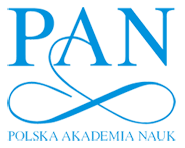Professor Jerzy Morgiel, D.Sc., Ph.D., Eng.
Structure of the Section
1. Electron microscopy working group (transmission and scanning electron microscopy with related techniques)
Workplan:
The main area of interest of the working group will involve the issues related to taking advantage of the progress in attachments used in a new generation of the electron microscopes used in materials research. It involves modified electron detectors (i.e. "in-column" or "segmented" for SEM as well as a range (BF, DF, HAADF) detectors for TEM), as well as those used for Energy Dispersive X-ray (EDS) systems. Simultaneously, the attention will be paid to rapid development of the orientation imaging (OI) taking place both in scanning and transmission electron microscopes. The last, but not least important, would be gaining more data on the progress in advanced scanning electron microscopy method like those realized at two beam conditions.
2. X-ray diffraction working group (including methods based on diffraction of conventional and synchrotron radiation)
Workplan:
The main interest of the working group is focused on structural, phase and texture investigations of metals and alloys with particular attention to smart metallic materials exhibiting martensitic transformation and related phenomena such as shape memory effect, magnetocaloric effect and superelasticity. Another area of interest is related to construction materials with ultra or nanocrystalline structures.
For this purpose the main activity of the group will be concentrated on conventional and synchrotron X-ray diffraction experiments. The obtained diffraction pattern will be interpreted in order to determine phase structure (including Rietveld refinement), grain size, degree of order and to measure crystallographic texture. In the case of single crystalline materials the conducted studies will focus on orientation determination and in modulated structures on periodic and partially periodic atomic displacement, which is called modulation.
3. Phase analysis working group (including DSC calorimetry, thermogravimetric, mechanical and dilatometric analyses)
Workplan:
The scope of the working group is focused on theoretical and practical aspects of the application of different methods of thermal analysis and calorimetry in the investigations of materials properties, phase transitions and all other thermo-chemical and thermo-mechanical processes in materials. From the point of view of the materials science the Section’s activity should be concentrated on the metallic materials, ceramics, polymers, and related thermal properties evolution. The methods of special interests are differential thermal analysis (DTA), differential scanning calorimetry: classical, modulated and under external pressure (DSC, MDSC, PDSC), thermo- and differential thermo- gravimetry (TG, DTG) as well as thermo-mechanical, dynamo-thermo-mechanical, dynamo-mechanical and dilatometric methods of analysis (TMA, DTMA, DMA and DI).
4. Metallurgy working group (including investigations of temperature-dependant thermodynamic and thermophysical properties of materials in liquid, semi-solid and solid states, including density, surface tension, viscosity, fluidity, thermal conductivity, electrical conductivity and thermal expansion)
Workplan:
Main actions of working group will be focused on:
- Promotion of working group activities and dissemination of a new knowledge in metallurgy area during meetings/conferences/seminars, including invited and plenary lectures.
- Publication of review papers on current scientific, methodological and technological problems in metallurgy.
- Strengthening the ties with the Polish metallurgical industry.
- Collaboration with other working groups and Sections of the Committee of Polish Academy of Sciences as well as international and national organizations with a similar profile of activities.
Preliminary time schedule of Section activity
- Section meeting in the frame of EMAS Workshop 2021 held in Krakow, May 2021 – postponed to May 2022
- Participation in the organization of seminars in the frame of EUROMAT 2021 Congress, Graz, 12-16.09.2021
- Organisation of the Summer School „Practical aspects of microbeam analysis”, September 2021
- Co-organizing of 13th Polish – Japanese Seminar on Micro and Nano analysis, 19-22 September 2021
- Annual meeting of the section – seminar with an invited paper, IV quarter of 2021
- Organisation of the Summer School „Practical aspects of microbeam analysis”, July 2022
- Organization of two International Conferences, mainly High Temperature Capillarity, Krakow, 12-16.09.2022 and TOFA-2022, Krakow, 12-16.09.2022
- Annual meeting of the section – seminar with an invited paper, IV quarter of 2022
- Organisation of the Summer School „Practical aspects of microbeam analysis”, July 2023
- Annual meeting of the section – seminar with an invited paper, IV quarter of 2023, summarizing the Section activity.



